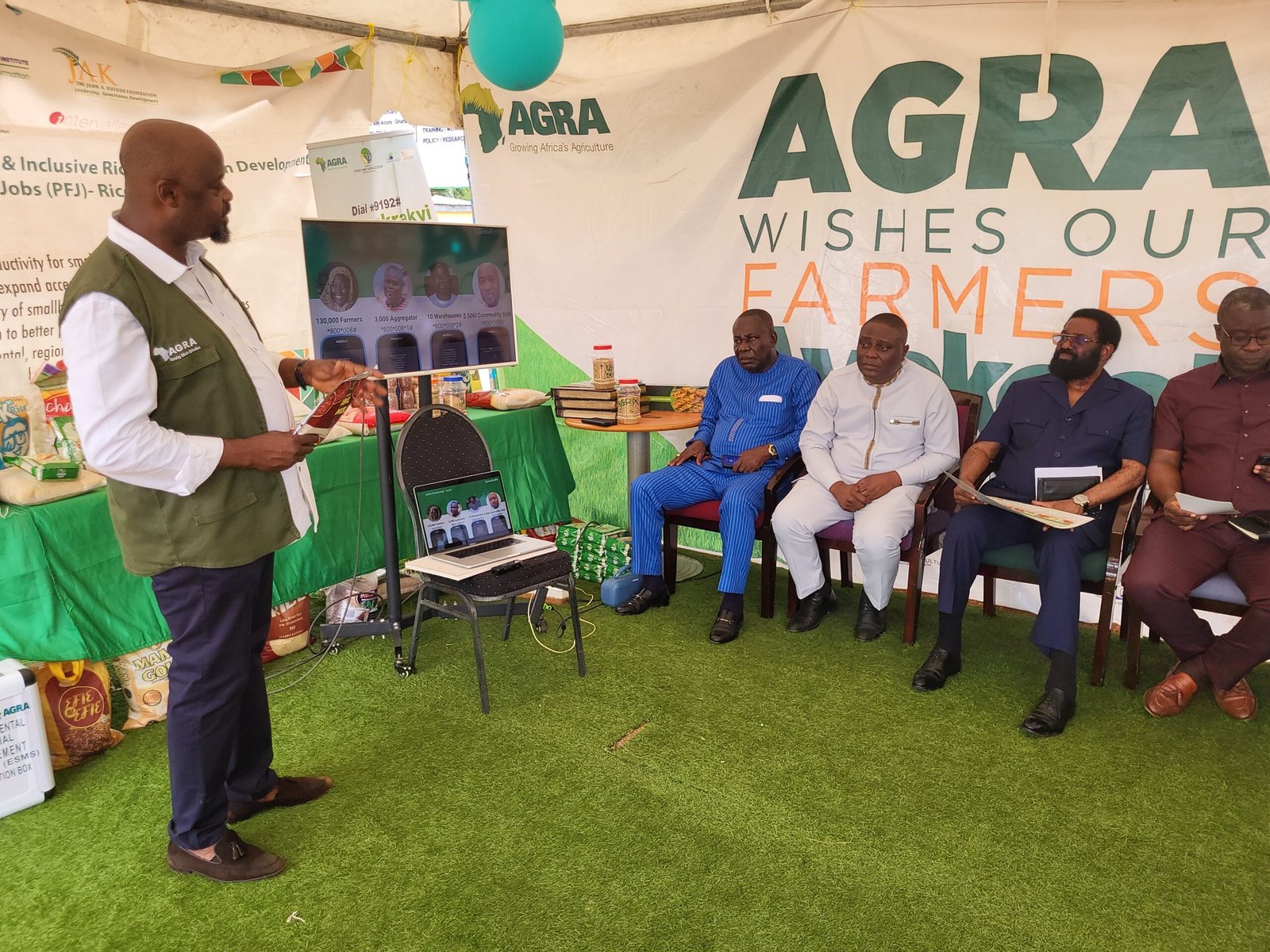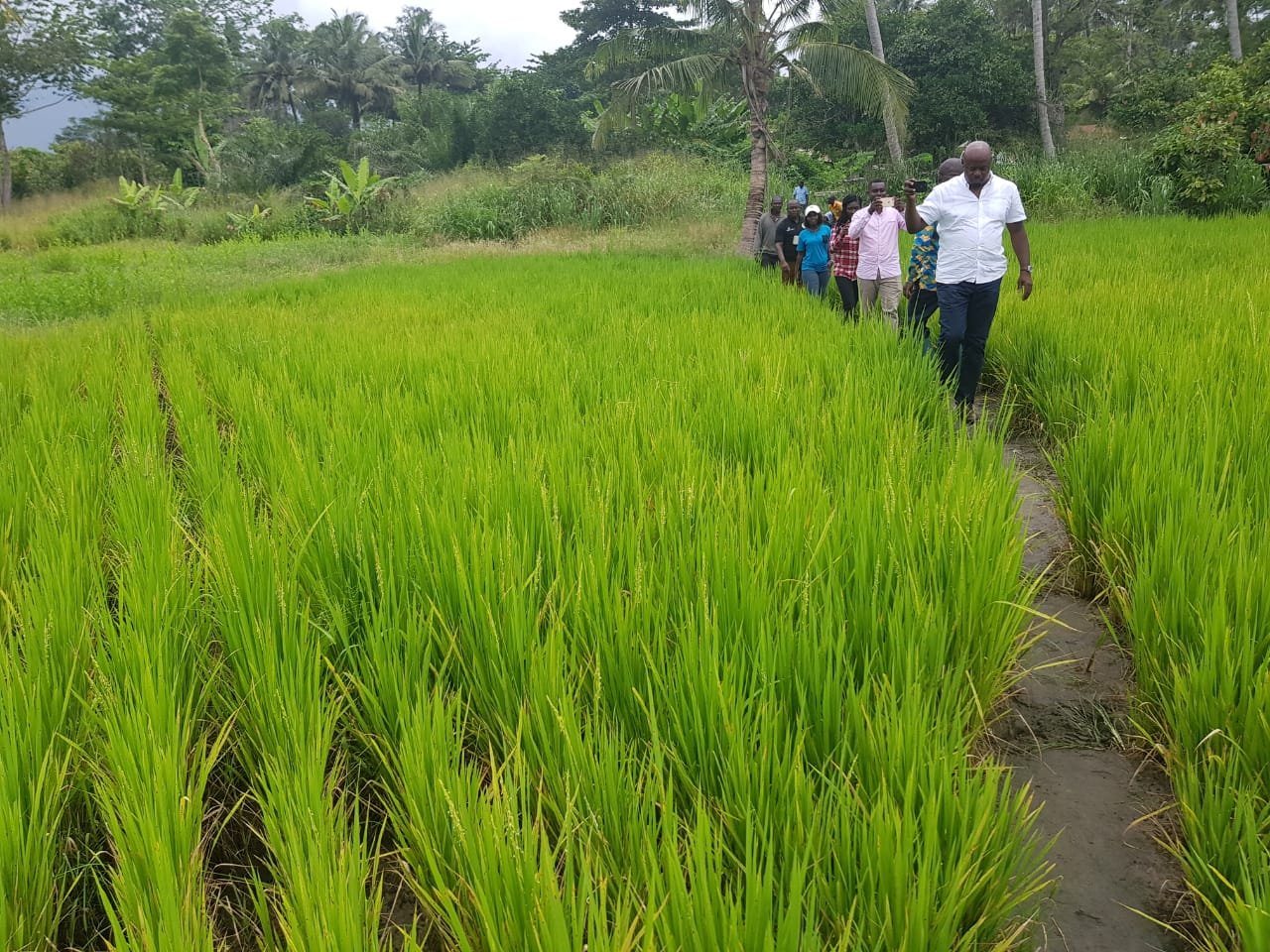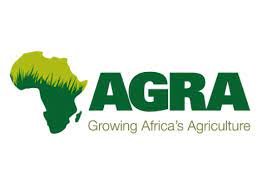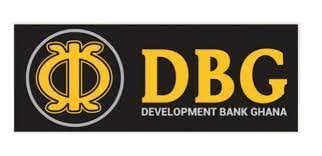Enhancing productivity, financial inclusion, and market systems in Ghana’s rice sector
This multi-year initiative, supported by the Alliance for a Green Revolution in Africa (AGRA), directly impacted over 180,000 rice farmers and 200,000 value chain actors. Hopeline Institute led efforts to improve rice yields through training on good agronomic practices, post-harvest handling, and technology adoption. The project also strengthened market linkages and access to finance, playing a central role in the nationally recognized “Eat Ghana Rice” campaign to promote local rice consumption and reduce imports.
0
+








 Farmer mobilization and capacity building in Good Agricultural Practices (GAP) and post-harvest handling
Farmer mobilization and capacity building in Good Agricultural Practices (GAP) and post-harvest handling